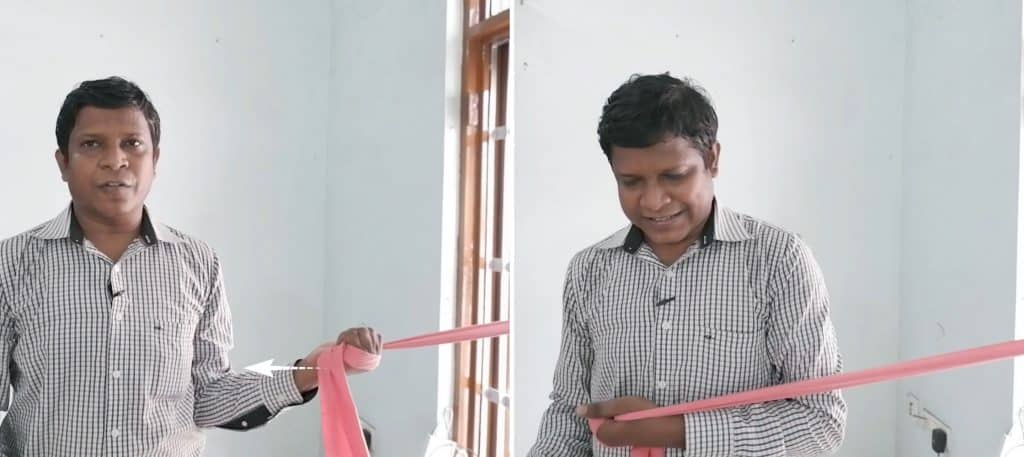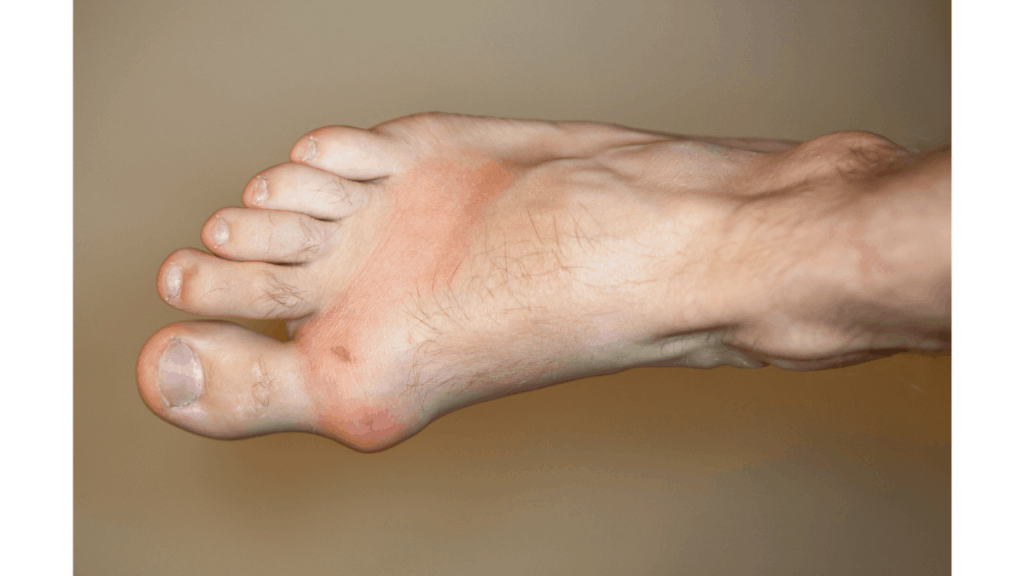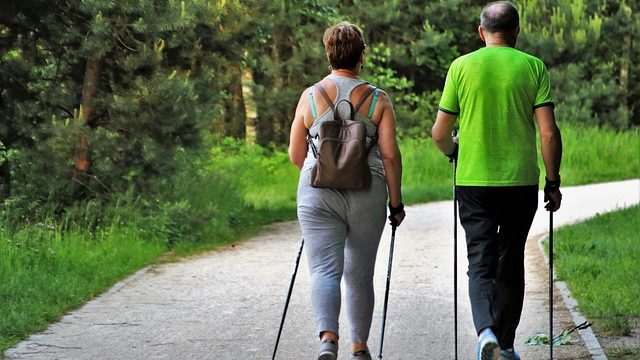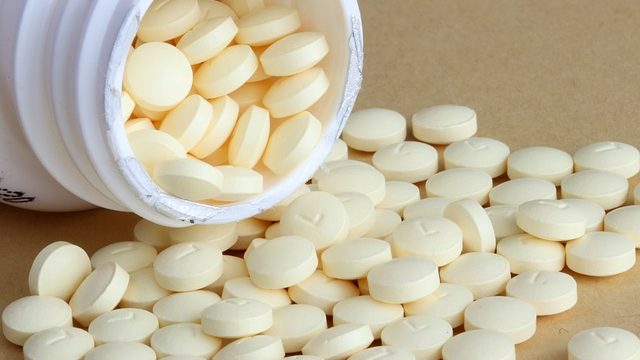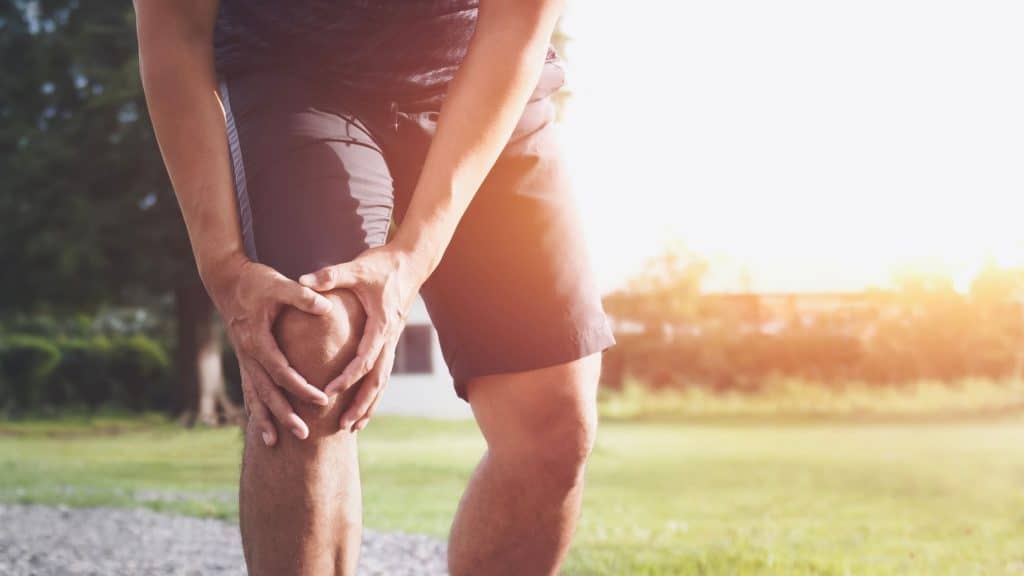Last updated on November 4th, 2023 at 11:13 am
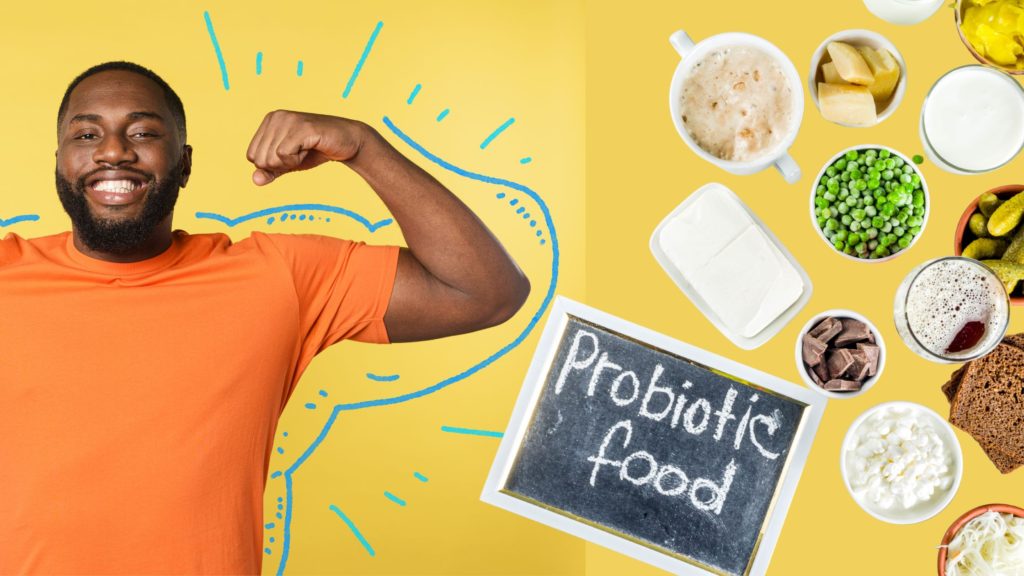
Currently, there is a lot of interest in muscle building among young athletes. Also, in medical conditions such as sarcopenia, in which there is muscle loss, one needs to build muscle mass. It is a well-established fact that exercise helps to maintain muscle mass and strength but probably does not affect the biological process that ultimately leads to sarcopenia1.
Presently, micronutrients and protein supplements are used for increasing muscle mass, but there is increasing interest in finding other novel ways to optimize muscle that are complementary to present methods. The health benefits of probiotics in disease conditions such as diarrhoea, food allergies, and treatment of diabetes, obesity, and cancer are already known2. Many of us may already be taking it in one or another. But can probiotics help in muscle building? Can it be effective if we take it along with protein supplements? Let’s find out in this article.
How can probiotics make our muscles strong?
To understand how probiotics can make our muscles strong, we first need to understand probiotics, how food is digested in our gut and how protein synthesis takes place in our body.
A friendly microorganisms in our gut that help digest food
When we eat food, it enters into the gastrointestinal tract or gut, starting from the oesophagus through the stomach and small intestine and ending in the colon. This gastrointestinal tract harbours millions of dynamic microorganisms, termed gut microbiota that help break down, digest and absorb food particles.
In short, the gut microbiota is friendly microorganisms present in our gut to help process food and have key roles in many aspects of human health like metabolism, immune system and even neuro-behavioural traits3. However, the food we consume and our diet are the main drivers in shaping the gut microbiota across the lifetime4.
There are specific food and diet patterns that affect these microbes, which in turn affects our health. For example, a high-intensity sweetener hurts gut microbes. Food additives such as emulsifiers abundant in processed foods also negatively affect gut microbes3. Not only this, restrictive diet patterns like strict vegan, raw food or “clean eating” diets, and gluten-free diets also have negative effects on these microbes. In addition to diet, medications also affect the normal functioning of gut microbes3.
Probiotics contain these friendly microorganisms
However, there is specific food that carries the live microorganisms that, when supplied to the gut, are beneficial to our health. These are termed probiotics. So, probiotics are live bacteria and yeasts that are supplied to the gut through food and food supplements are beneficial for our health.
Foods like yoghurts have adequate live bacteria. There are two types of probiotics: Bifidobacterium and Lactobacillus. The health benefits of probiotics are already known, such as anti-pathogenicity, anti-diabetic, anti-obesity, anti-inflammatory, anti-cancer, anti-allergic, and angiogenic activities and their effect on the brain and central nervous system2. But can probiotics help in muscle building?
Impact of probiotics on muscle mass
The study has established the link between the positive impact of exercise and gut microbiota. A mice study has found that regular physical activity increases the diversity and richness of gut microbiota5. Another study showed a significant reduction in the relative abundance of gut microbiota in conditions like sarcopenia, in which there is a decrease in muscle mass and strength with age. It is also found to be affected by conditions such as undernutrition and cachexia5. Considering this, scientists sought strategies targeting gut microbiota to fight against muscle mass loss and function or optimize muscle performance.
For this, the researchers conducted an animal model study and selected leukaemic mice with loss of muscle mass and weak muscle strength. These leukaemic mice were administered probiotics through drinking water. The result found that probiotics restore the lactobacillus population in the gut and limit skeletal muscle mass loss.
Findings also reveal that probiotics can positively influence dietary protein digestion and utilization in the gastrointestinal tract7. As our muscle accounts for 50 to 75% of all body protein, the increased protein synthesis will also help build muscle mass.
How probiotics can improve exercises performance
Probiotics have also been found to increase muscle function and improve physical performance in healthy animal studies, which can benefit athletes and sports personalities. In another study, healthy mice were fed with probiotics supplementation to determine if probiotics could optimise muscle function and physical performance in models that could mimic the metabolic/physiological responses of young athletes.
In all studies, muscle function and/or physical performances were improved; supplementation for six weeks increased muscle mass (gastrocnemius muscle) and improved forelimb grip strength and swimming endurance in mice. Therefore, a probiotic supplement can improve exercise performance and be used for its anti-fatigue bioactivity6.
Food source of probiotics for muscle growth
Fermented food has been known to have beneficial bacteria for ages; these bacteria are probiotics. So, fermented food and dairy products are good sources of probiotics8. The common fermented foods that contain probiotics are yoghurt, kefir, kombucha, sauerkraut, pickles, miso, kimchi, bread and cheeses, etc.
Conclusion
We all know the benefits of physical activity and exercise in our musculoskeletal health and how it is crucial for building muscle mass. People who perform exercises regularly tend to have more healthy diets, including a higher dietary fibre intake. This is why bacteria associated with good immunological and metabolic health are more abundant in physical activity. As research has shown a positive association between gut microbiota and muscle mass, one can consider a strategy of probiotic food and supplements in addition to protein supplements. And all this will work in conjunction with physical exercises.
The author is a physiotherapist who has been practising for the last 17 years. He holds a Bachelor's in Physiotherapy (BPT) from SVNIRTAR (Swami Vivekananda National Institute of Rehabilitation and Research), one of the prestigious physiotherapy schools in India.
Whatever he learns dealing with his patient, he shares it with the world through blogs and e-books. He also owns a YouTube channel, "Sunit Physiotherapist" with over 8 lakh active subscribers. Here, he shares everything he gets to learn serving the patient.

